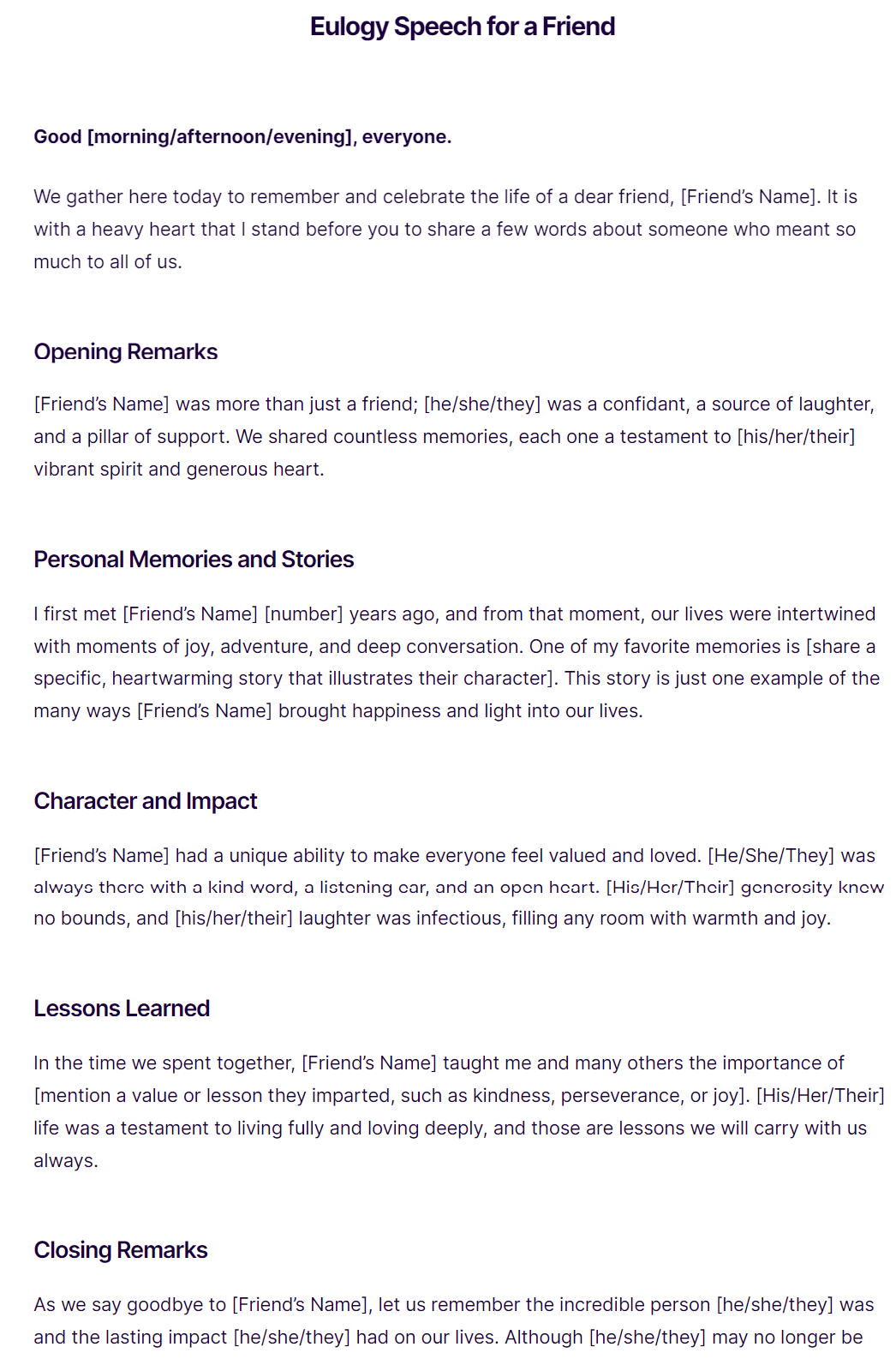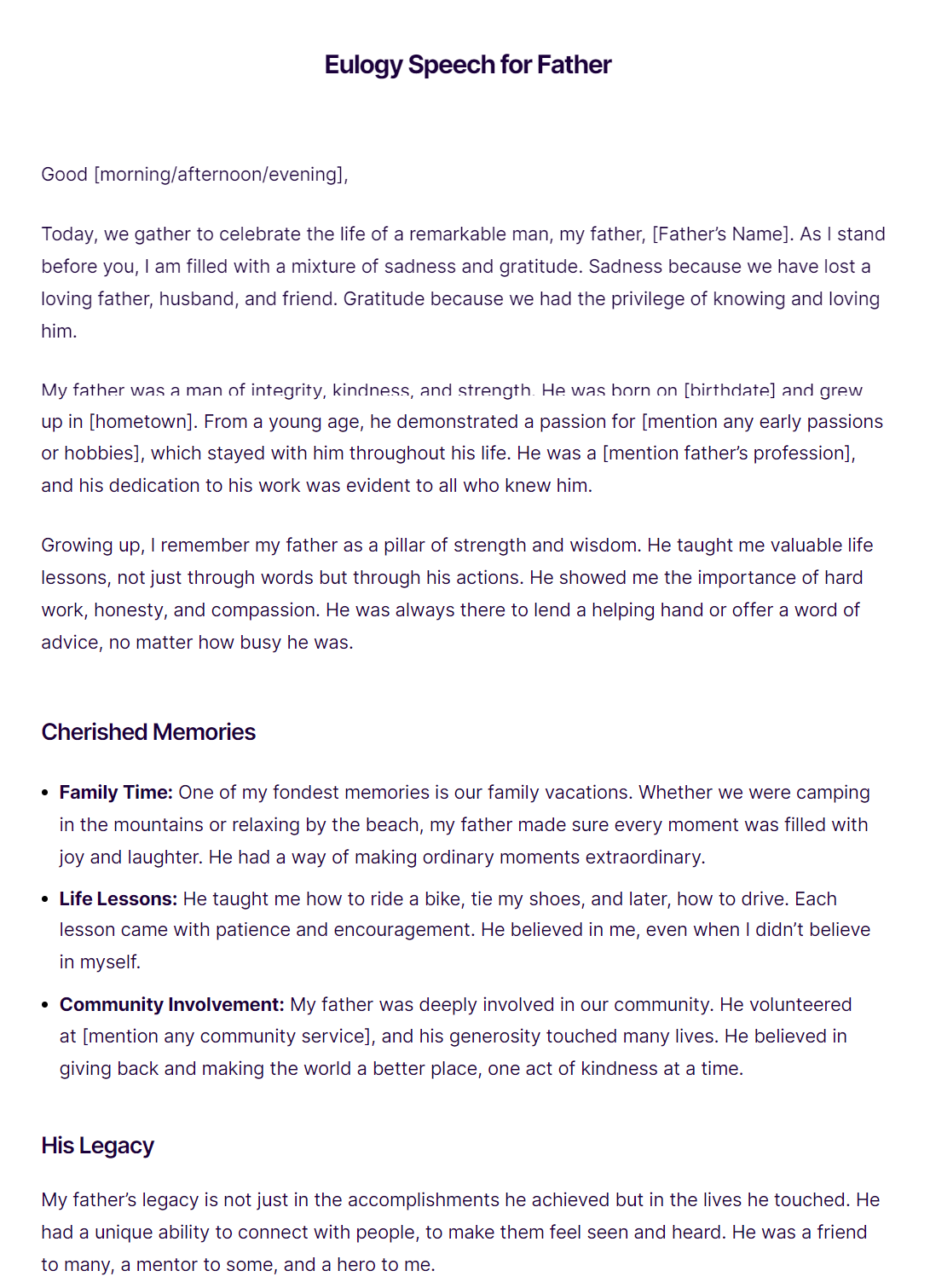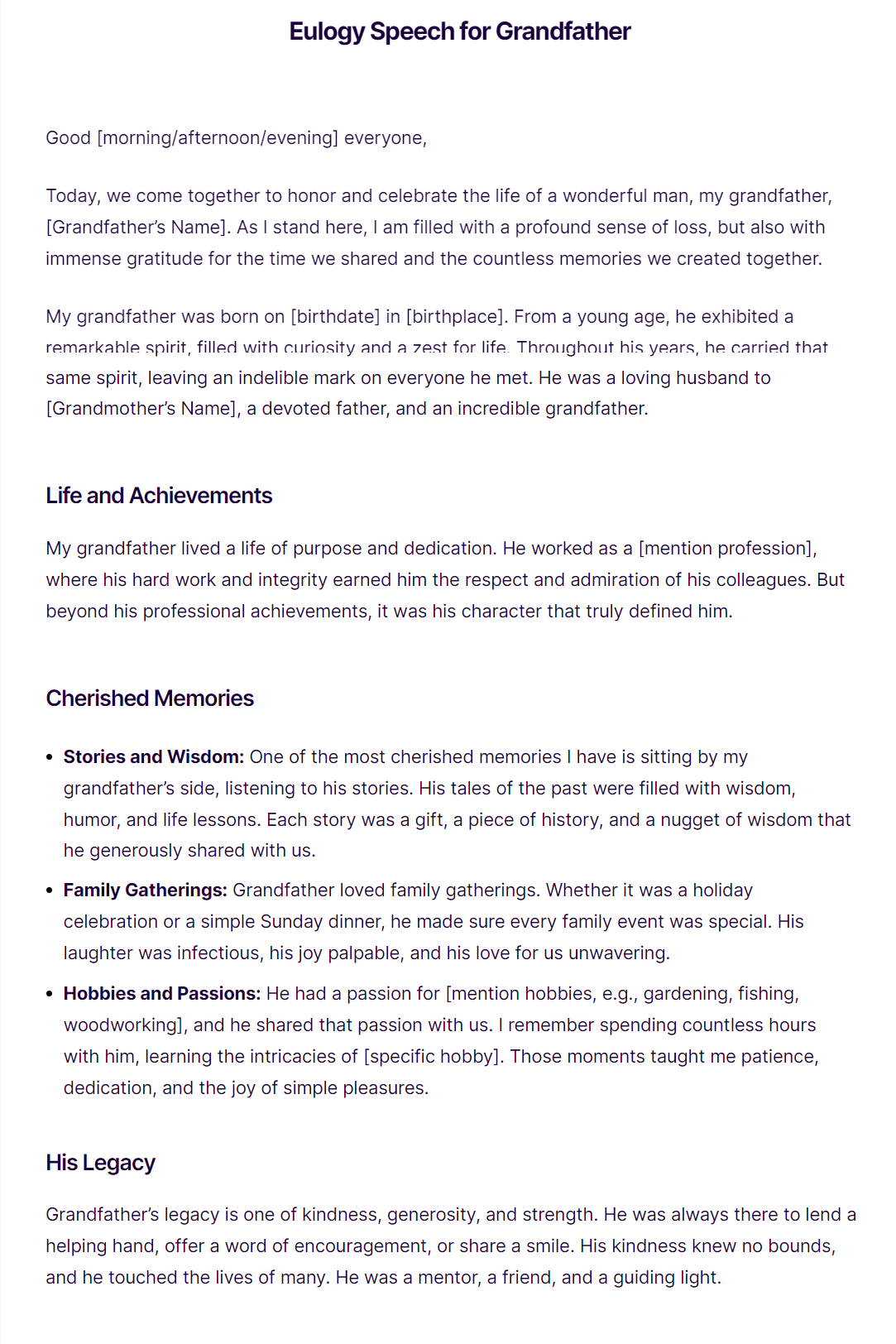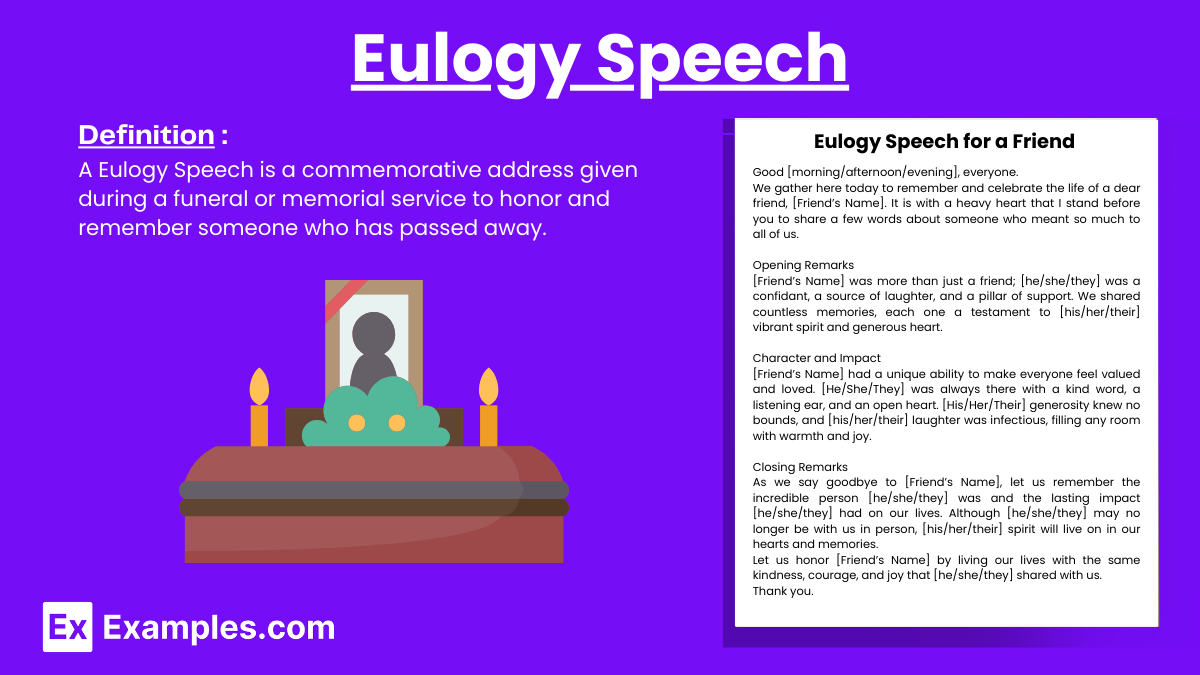32+ Eulogy Speech Examples
A eulogy speech is a heartfelt tribute delivered at a funeral or memorial service to honor and celebrate the life of a deceased person. It often includes personal anecdotes, memories, and reflections on the individual’s character, accomplishments, and the impact they had on others. The purpose of a eulogy is to pay respect, provide comfort to the grieving, and highlight the meaningful aspects of the person’s life.
What is Eulogy Speech?

Eulogy Speech Format
Introduction
Greet the audience and introduce yourself.
State your relationship to the deceased.
Body
Share personal anecdotes and memories.
Highlight the deceased’s achievements and character traits.
Reflect on their impact on family, friends, and community.
Conclusion
Eulogy Speech Example
Short Eulogy Speech Example
Eulogy Speech for a Friend

Eulogy Speech for Father

Eulogy Speech for Grandfather

More Eulogy Speech Topics
- Eulogy Speech for Grandmother
- Eulogy Speech for Yourself
- Eulogy Speech for Mother
- Eulogy Speech for Colleague
- Eulogy Speech for Teacher
- Eulogy Speech for Mentor
- Eulogy Speech for Uncle
- Eulogy Speech for Aunt
- Eulogy Speech for Brother
- Eulogy Speech for Sister
- Eulogy Speech for Husband
- Eulogy Speech for Wife
- Eulogy Speech for Child
- Eulogy Speech for Cousin
- Eulogy Speech for Boss
- Eulogy Speech for Neighbor
- Eulogy Speech for Coach
- Eulogy Speech for Best Friend
- Eulogy Speech for Religious Leader
- Eulogy Speech for Artist
- Eulogy Speech for Musician
- Eulogy Speech for Scientist
- Eulogy Speech for Community Leader
- Eulogy Speech for Entrepreneur
- Eulogy Speech for Lawyer
- Eulogy Speech for Politician
- Eulogy Speech for Author
How to Write Eulogy Speech
1. Gather Memories:
Talk to family and friends for anecdotes and stories.
Reflect on your own memories and experiences.
2. Outline the Speech:
Introduction: Introduce yourself and your relationship to the deceased.
Body: Share personal stories, highlight achievements, and reflect on their character.
Conclusion: Summarize key points, express gratitude, and offer a final farewell.
3. Write the Draft:
Start with a hook or meaningful quote.
Use specific examples and anecdotes.
Keep it concise and heartfelt.
4. Edit and Revise:
Ensure clarity and flow.
Remove any unnecessary details.
Practice reading it aloud.
5. Deliver with Emotion:
Speak slowly and clearly.
Allow yourself to express your emotions.
Tips to Deliver Eulogy Speech
- Practice: Rehearse your speech multiple times to gain confidence and ensure smooth delivery.
- Stay Calm: Take deep breaths and remain composed. It’s okay to pause and collect your thoughts if you get emotional.
- Speak Clearly: Project your voice and speak slowly to ensure everyone can hear and understand you.
- Make Eye Contact: Engage with the audience by looking up occasionally, rather than reading directly from your notes.
- Be Genuine: Speak from the heart and let your emotions show; it’s natural and touching.
- Use Notes: Have a written copy or outline of your speech to keep you on track.
- Stay Hydrated: Drink water before and after to keep your throat clear.
- Accept Support: If you become too emotional, it’s okay to ask someone to step in or take a moment to gather yourself.
Who typically delivers a eulogy?
A family member, close friend, or clergy member typically delivers the eulogy, sharing personal stories and memories.
How should I start a eulogy?
Start a eulogy with an introduction that acknowledges the audience and briefly states the purpose of the speech.
What should I include in a eulogy?
Include personal anecdotes, achievements, character traits, and meaningful stories that highlight the deceased’s life and impact.
How long should a eulogy be?
A eulogy typically lasts between 5 to 10 minutes, depending on the context and number of speakers.
How do I handle emotions while delivering a eulogy?
Practice beforehand, take deep breaths, and pause if needed. It’s okay to show emotion; it reflects genuine feelings.
Can I use humor in a eulogy?
Yes, using appropriate humor can lighten the mood and celebrate the deceased’s joyful moments and personality.
How should I organize a eulogy?
Organize a eulogy with a clear structure: introduction, main body with stories and reflections, and a heartfelt conclusion.
What tone should a eulogy have?
The tone should be respectful, heartfelt, and personal, reflecting the unique personality and life of the deceased.
Can I read a eulogy from notes?
Yes, reading from notes or a written script ensures you stay on track and cover all important points.
How do I personalize a eulogy?
Personalize a eulogy by including specific stories, memories, and experiences that illustrate the deceased’s character and impact.



